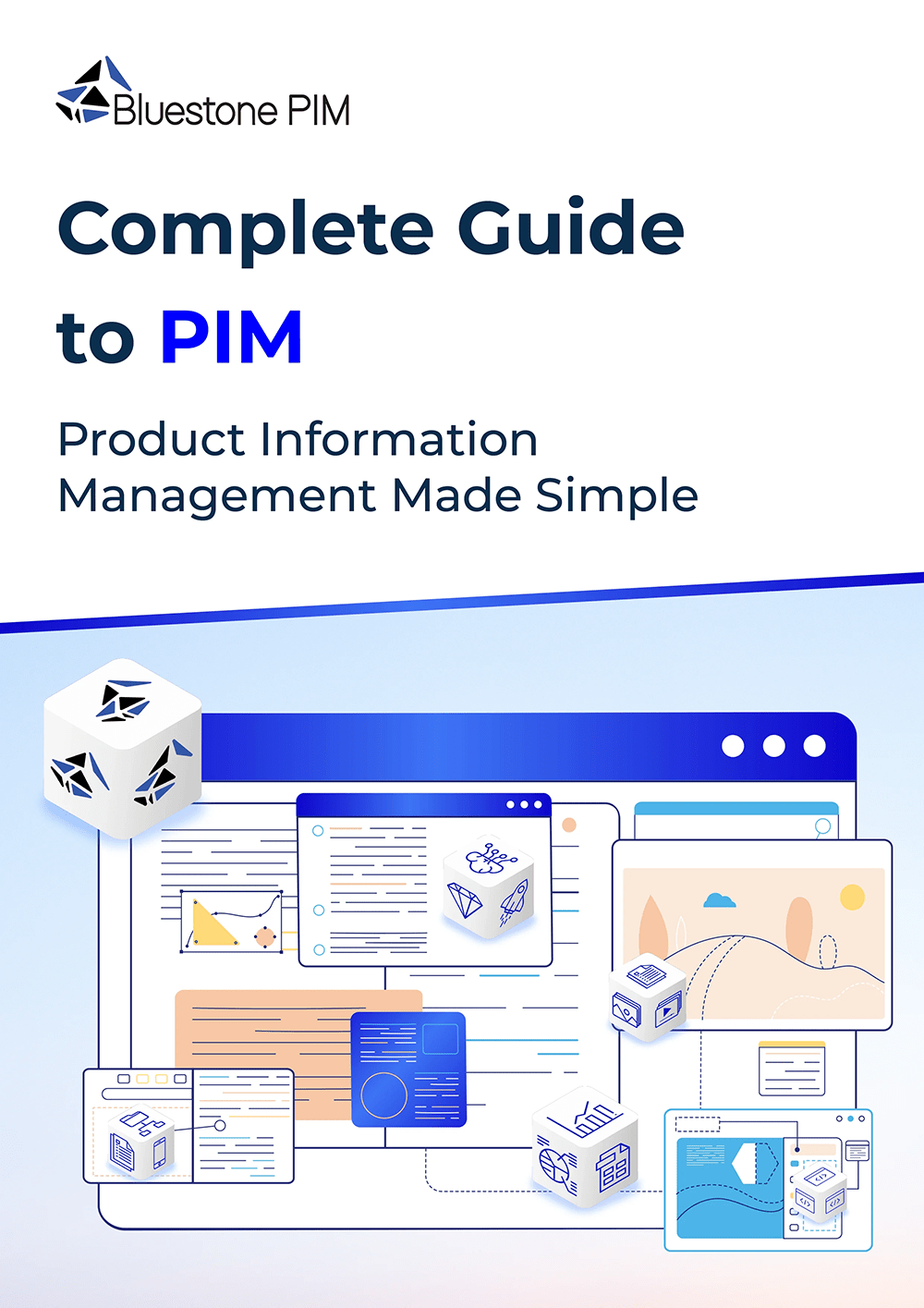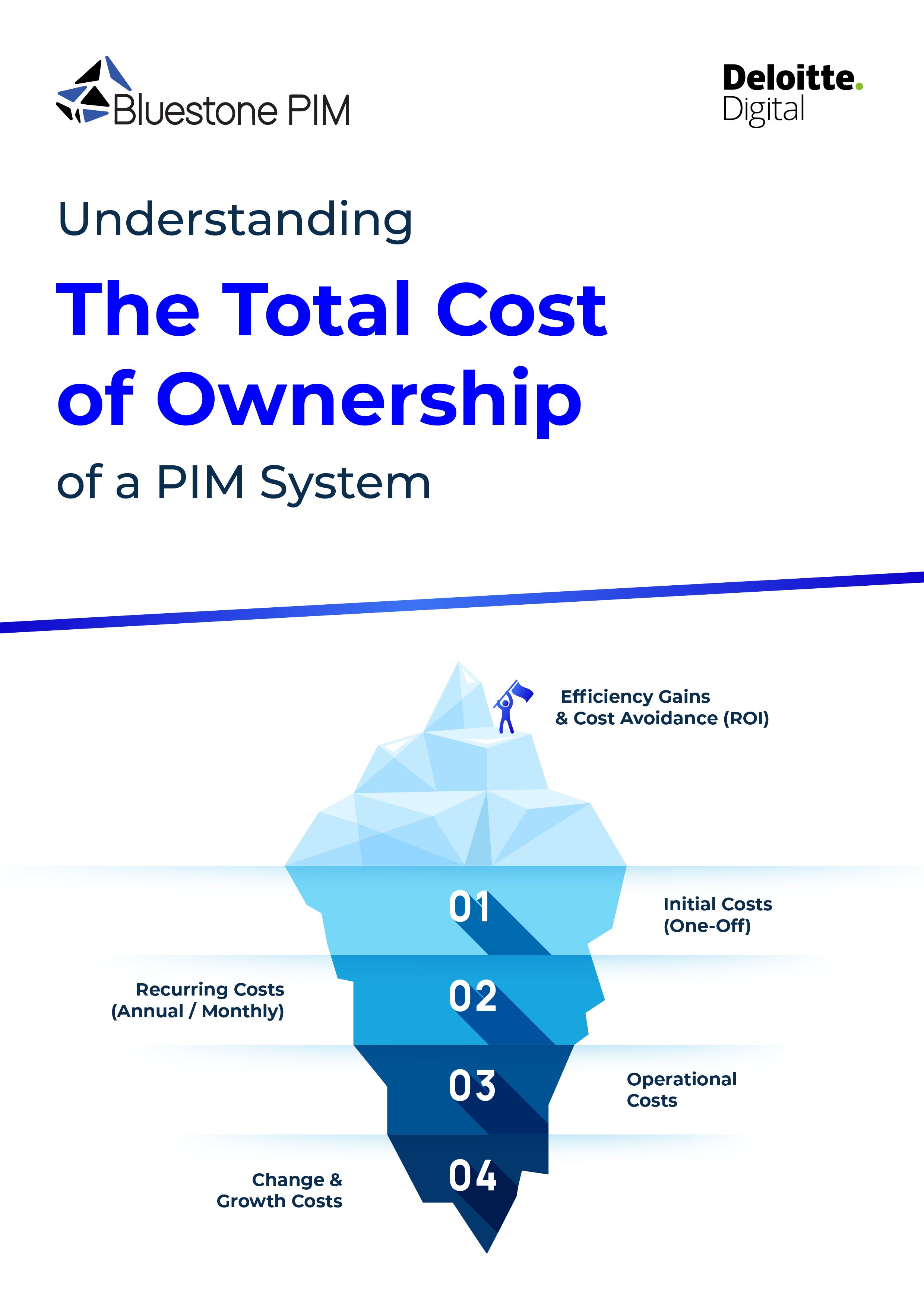Cloud PIM Software: 2025 Buyer’s Guide for Composable Commerce

Table of Contents
- What Is Cloud PIM Software?
- Cloud PIM vs On-Premises PIM
- Key Benefits of Cloud PIM Software
- Who Benefits Most from Cloud PIM?
- Digital Asset Management in Cloud PIM Solution
- How To Evaluate Cloud PIM
- Cloud-Native PIM vs Cloud-Hosted PIM
- Why Bluestone PIM?
- The Future of Product Information Is in the Cloud
- FAQs
Cloud PIM software centralises product data in a single platform, making it easier to manage, enrich, and distribute.
Unlike traditional on-premises PIM solutions, cloud PIM is delivered as Software as a Service (SaaS), offering faster deployment, scalability, and cost efficiency.
This guide shows how Cloud PIM outclasses on-prem for modern commerce and why Bluestone PIM is the safer, faster route for teams who need to move now.
What Is Cloud PIM Software?
Cloud PIM software, or cloud-based Product Information Management, is a system that centralises, organises, and distributes product data efficiently across all sales and marketing channels.
Unlike traditional on-premises PIM systems that require heavy IT infrastructure, cloud PIM is hosted online and delivered as Software as a Service (SaaS).
Traditional PIM systems present challenges such as difficulties in scaling, integrating with other platforms, and adapting to global expansion. Cloud PIM leverages cloud computing to provide scalable, cost-effective, and collaborative solutions for modern businesses.
This approach allows businesses to scale quickly, reduce operational costs, and maintain accurate product information across global markets.
As commerce goes digital-first, cloud PIM is now the backbone of composable commerce, keeping product data flowing smoothly between ERP, CMS, DAM, and e-commerce systems.

DOWNLOAD FREE E-BOOK
Product Information Management Made Simple
Your go-to resource for understanding, choosing, and using a PIM system to grow your business. Packed with clear explanations, real examples, and practical advice, this guide shows how to manage product data efficiently, improve consistency across channels, and speed up time-to-market.
Cloud PIM vs On-Premises PIM
Cloud and on-premises PIM take very different approaches. One is agile and scalable; the other is more costly and rigid.
Cloud PIM vs On-Premises PIM
|
Cloud PIM Software |
On-Premises PIM Software |
|
|
Deployment
|
SaaS, quick setup, no hardware |
Heavy IT infrastructure required
|
| Scalability |
Composable, API-driven
|
Limited by servers and storage
|
| Cost |
Subscription-based, predictable
|
High upfront and maintenance costs |
| Security | Cloud security with regular updates |
Requires in-house management
|
| Performance |
Elastic, real-time integrations
|
Slower, dependent on local servers |
Key Benefits of Cloud PIM Software
Cloud PIM brings tangible business benefits. It transforms how companies handle product information by improving accuracy, agility, and efficiency. Cloud based systems enable secure and centralised storing of product data, making it easily accessible and manageable across global teams. By leveraging advanced technology, cloud PIM streamlines product information management and supports business growth.
Centralised Product Data Management
Cloud PIM ensures a single source of truth for product information. By storing and synchronising data in one platform, businesses reduce errors, avoid duplicate work, and deliver consistent product details across every channel.
Scalability and Flexibility
A Cloud PIM platform adapts to business growth. Bluestone PIM, built on an API-first foundation with over 700 APIs, enables seamless integrations with ERP, CMS, CRM, and digital commerce platforms. This composable design makes it future-proof and enterprise ready.
Cloud PIM platforms also support international expansion by enabling localisation, compliance, and efficient management of product data across global markets. As your business grows internationally, cloud PIM empowers your team to manage product information efficiently and adapt to new market requirements.
Faster Time-to-Market
By automating product syndication to marketplaces, e-commerce sites, and print, Cloud PIM shortens product launch cycles. Features like Bluestone PIM AI Enrich streamline data enrichment, while AI Linguist accelerates translation for global launches. Cloud PIM platforms also make it easy to create and manage product content and digital assets, enabling rapid product launches.
Cost-Efficiency
With Cloud PIM, companies eliminate the need for expensive hardware and upgrades. Subscription pricing models make scaling more predictable and budget friendly.

DOWNLOAD FREE E-BOOK
Discover the True Cost of Product Information Management
Uncover the full cost of owning a PIM system. Don’t let hidden expenses catch you off guard. Download our comprehensive e-book and make confident decisions from day one.
Who Benefits Most from Cloud PIM?
Retailers and brands running multi-storefront or marketplace strategies
Manufacturers & distributors with complex attributes, variants, and localisation needs
Global teams requiring role-based access, workflows, and 24/7 availability
Digital Asset Management in Cloud PIM Solution
Digital asset management is a cornerstone of modern cloud PIM solutions, providing businesses with a powerful way to organise, store, and distribute their digital assets. With cloud based PIM software, all digital assets, such as product images, videos, and documents are managed from a centralised platform, ensuring consistency and accuracy across every sales channel.
This centralised approach means that teams can easily access the latest digital assets, reducing the risk of outdated or incorrect content reaching customers. Automated tagging and categorisation features make it simple to organise large libraries of digital assets, while advanced search functionality helps teams quickly find exactly what they need.
How To Evaluate Cloud PIM (5-Step Process)
-
Clarify data model & governance (attributes, locales, roles, workflows).
-
Map integrations (commerce, ERP, DAM, feeds). Require open APIs and eventing.
-
Score AI capabilities (enrichment, translation, analytics) and human-in-the-loop controls.
-
Validate syndication (channels, retailers, marketplaces, GDSN if needed).
-
Run a pilot with 100–500 SKUs to validate performance, authoring UX, and change control.
Cloud-Native PIM vs Cloud-Hosted PIM
Beware the “cloud” label: cloud-native PIM is multi-tenant SaaS; cloud-hosted is a lifted on-prem app.
Strong network connectivity is essential for both cloud-native and cloud-hosted PIM platforms, as it enables seamless integration, data synchronization, and scalable access to third-party systems.
|
Cloud-Native PIM (Bluestone PIM) |
Cloud-Hosted “Cloud PIM” |
|
|
Architecture
|
Microservices, API-only, multi-tenant SaaS |
Single app lifted to a cloud server
|
| Releases |
Automatic, frequent, vendor-managed
|
Manual patches/major upgrades |
| Scalability |
Elastic by design
|
Limited by VM sizing, ops overhead |
| Extensibility | Composable components; swap/extend without replatforming |
Tighter coupling; costly change
|
| TCO/Speed |
Faster time-to-value, predictable costs |
More ops time, hidden infra costs |
Why Bluestone PIM?
Many “cloud PIMs” are cloud-hosted (a lifted on-prem app on a VM).
Bluestone PIM is cloud-native: multi-tenant SaaS with elastic scale and vendor-managed releases. You get quicker improvements, no patching, and performance that grows with your catalogue.
Bluestone PIM is the central product data layer in a modular stack. It models, governs, and enriches product data once, then syndicates it everywhere via APIs.
How Bluestone PIM fits with your tools :
-
CMS – pulls approved product copy and media for pages
-
E-commerce platform – receives price, variants, availability, attributes
-
ERP/MDM – exchanges master data and status updates
-
Marketplaces/retail partners/apps/print – get consistent, channel-ready feeds
Watch the video to check why leading enterprises choose Bluestone PIM.
The Future of Product Information Is in the Cloud
Cloud PIM software is no longer optional for enterprises aiming to scale in omnichannel commerce. It ensures accuracy, agility, and global readiness. Cloud-based platforms are driving the future of product information management by enabling global scalability, regulatory compliance, and technological innovation.
Bluestone PIM stands out as the enterprise-ready, composable, API-first cloud PIM, designed to handle complex product data and accelerate growth.
See AI-powered PIM in action
Talk to our experts today and discover how Bluestone PIM can address your needs.



![AI in E-commerce: How to Compare AI Agents in PIM Systems [Framework]](https://www.bluestonepim.com/hubfs/AI-in-E-commerce-1.png)
